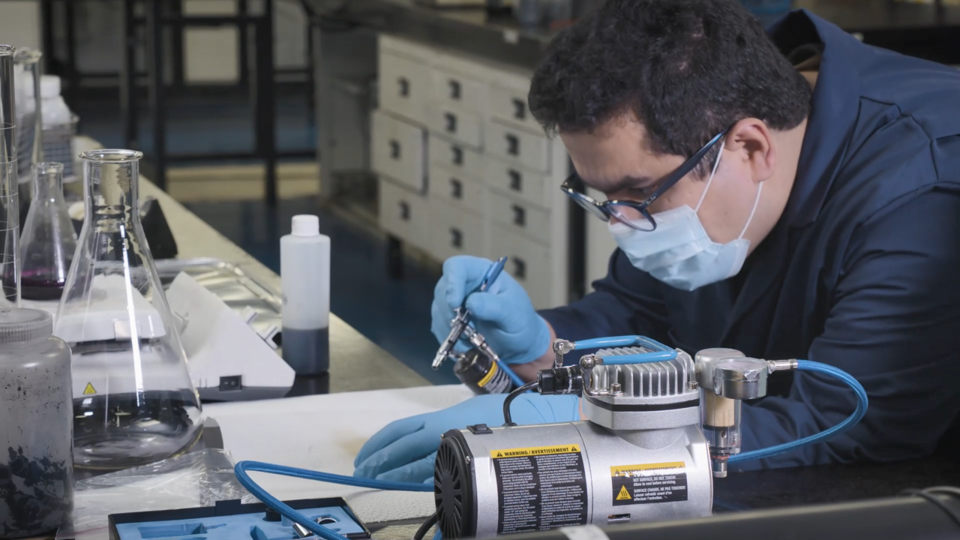A Guelph researcher has invented a new antiviral material for face masks designed to thwart transmission of COVID-19.
Seyyedarash Haddadi was studying anticorrosion coatings when the pandemic hit. Quickly pivoting his research on the material graphene toward virus prevention, he created a new compound that is a first-of-its-kind, low-cost and more than 99 per cent effective antimicrobial fabric coating, the innovation organization Mitacs said in a media release.
Made from a graphene oxide and silver combination, it has just received Health Canada approval and is being incorporated into millions of face masks for sale worldwide.
The breakthrough work earned Haddadi the Mitacs and National Research Council Industrial Assistance Program Award for Commercialization.
The honour was presented at a hybrid ceremony on Tuesday, held online and in-person at the National Arts Centre in Ottawa.
Haddadi — a post-doctoral fellow working under the supervision of Dr. Mohammad Arjmand of the UBC Okanagan, School of Engineering — is being recognized for his innovative work to develop the first-ever graphene oxide-based material approved for consumer use as an antimicrobial fabric coating.
Working with industrial partner Zentek and under the direction of Dr. Colin van der Kuur in a Guelph lab, Haddadi discovered that covering super thin sheets of patent-pending oxidized graphene with silver resulted in extraordinary antiviral and antibacterial properties. Further testing showed that his invention, incorporated in a surgical mask, reduces transmission of active pathogens by more than 99.99 per cent, including COVID-19 viral particles and bacteria.
“The final product is made from a silver-coated graphene oxide sheet, less than one nanometer in thickness, that we disperse in water and then spray on the surface of fabrics,” Haddadi said in the release, explaining that no solvents or toxic chemicals are added to the compound, resulting in an, odourless coating that is safe for consumer use. “When we apply it to an average four-ply face mask, we coat the inner layer so that nothing is on the exterior of the mask."
After receiving Health Canada approval in late September, Zen Graphene Solutions made its first commercial sale of the novel coating — marketed as ZenGuard™ — to TreborRX Corp. of Collingwood, Ontario, which plans to launch what it calls a “game-changing” four-ply mask.
Zentek is also investing $6 million to build its own manufacturing capacity to produce enough coating and coated materials for up to 800 million antimicrobial face masks per month by early next year.
“After announcing our invention, we heard from many companies around the world who are interested in partnering with us to test and use this coating on their fabrics,” Haddadi said.
The appeal, he added, is that only a very small amount of the coating is required to effectively deactivate pathogens. “One gram of material is sufficient to coat 300 masks, making this a very affordable large-scale solution,” he said.
